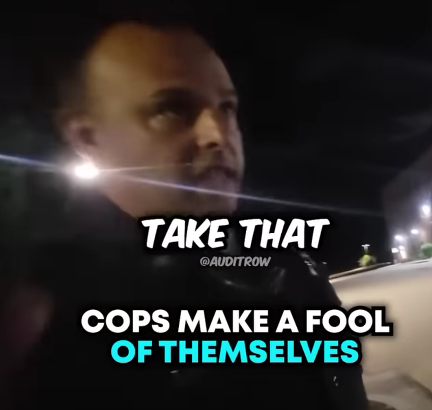A recent incident caught on camera has sparked debate over police conduct after a man was detained and handcuffed for holding a beverage — which turned out to be non-alcoholic. The footage shows the officer quickly placing the man in handcuffs without properly verifying whether any law had actually been broken.
As one viewer pointed out, “He had the bottle in his hand and could have easily looked at it and determined the beverage was not alcoholic in less time than it took to apply the cuffs.” This observation has raised concerns about whether the officer acted prematurely and without justification.
In most jurisdictions, simply holding a beverage does not warrant detention unless there is clear evidence of illegal activity, such as public consumption of alcohol where prohibited. In this case, once it was clear that the drink was non-alcoholic, there should have been no grounds for further action.
Adding to the controversy is the issue of ID requests. In many countries, police cannot legally demand identification without reasonable suspicion of a crime. The commenter further notes, “No crime, no ID required, so the detention was likely unlawful.”
Legal experts suggest that detaining someone without cause could amount to a violation of civil rights, particularly if the individual is subjected to handcuffing or other forms of restraint without clear justification. Unlawful detentions not only undermine public trust but also expose law enforcement agencies to potential legal challenges.
This incident highlights ongoing concerns about over-policing and the need for officers to properly assess situations before resorting to force or detention. Quick, unchecked decisions can escalate harmless encounters into unnecessary confrontations, putting both citizens and officers in avoidable conflict.
As videos like this continue to circulate online, they fuel wider discussions about accountability, proper police procedures, and the importance of respecting individual rights in everyday interactions.
The question remains: Was this an example of proactive policing, or a clear case of overreach? Many believe it’s the latter — a reminder that authority must always be exercised with caution, fairness, and within the bounds of the law.
